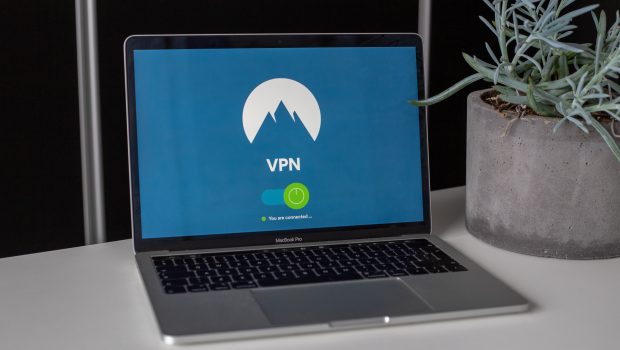Do You Need a VPN at Home? Here’s Why You Might
There’s no doubt that VPN usage continues to rise sharply in the UK, particularly among Android and iOS users.
After all, mobile devices such as smartphones are more likely to connect regularly to public networks, which are particularly vulnerable to the machinations of hackers and more likely to benefit from the additional network protection that VPNs provide.
While VPNs primarily help to encrypt your data on public networks and hide your activity from hackers and Internet Service Providers (ISPs) alike, you’re also free to use one to safeguard your private connection at home.
But is this really necessary? Here are a few reasons why it may offer value to users in the modern age.
#1. Stop Your ISP From Tracking Your Activity
Whether you’re connected to the Internet through your home PC or want to boost your Wi-Fi connection with a VPN for your Android device, one of the main benefits is that you’ll stop your ISP from tracking your activity online.
Make no mistake; your ISP can track the sites that you visit while noting the amount of time that you spend on each one. If you were to buy some Bitcoin through the Binance exchange before selling tokens later in the day, for example, your ISP would log both all individual visits to the site and their duration without accessing any detailed transaction information.
Given that activities such as crypto trading are inherently private and secure, you may not particularly want your ISP tracking and logging this activity.
Even in general terms, you may be uncomfortable with a service provider collating huge swathes of personal data every time you connect online. After all, such data could be sold to third parties or unscrupulously hacked, but the good news is that a VPN can actively safeguard your home network.
But how does this work? Well, it initially encrypts any data routed through the client’s virtual tunnel and protocols, presenting this as an indecipherable string of code that’s incredibly difficult to intercept.
So, your ISP will have no idea what you’re doing, making it hard for them to collate definitive data or engage in practices such as broadband throttling (we’ll explore this further in the next section).
What’s more, VPNs will mask your device’s physical location, replacing its unique IP address with that of a selected VPN client server.
This can be located anywhere in the world and difficult to trace, making your web traffic data and activity largely invisible to ISPs (notwithstanding the impact of browser cookies).
#2. Minimise the Risk of Bandwidth Throttling
The aforementioned practice of bandwidth throttling is popular among ISPs, with this seeing them deliberately restrict your connection speeds without your prior knowledge or consent.
This translates into increased latency over time, and can interrupt practices such as gaming or streaming content when at home.
ISPs will often engage in bandwidth throttling during peak periods of general network usage, such as evenings or during the weekend.
However, they can also throttle the bandwidth of individual users in a much more targeted way, especially if you regularly engage in online activities that consume huge amounts of data (such as gaming, streaming or transferring cryptocurrency).
If you engage in these activities without a VPN, your ISP will be able to track your usage in detail and the frequency with which you visit associated sites. If they choose to, they can subsequently throttle your bandwidth, with a view to discouraging you from using as much data in the future.
As we’ve already touched on, leveraging the best VPN for your Android, iOS or Windows device can minimise this risk considerably.
Remember, a VPN can directly encrypt your web traffic data and unique IP address, preventing ISPs from observing your online activity and the precise sites that you visit on a daily, weekly or monthly basis.
If they cannot see where you’re going or what you’re doing online, they can’t target you or deliberately throttle your bandwidth at any point in time.
#3. Optimise Your Remote Working Security
There’s no doubt that the coronavirus pandemic accelerated the process of digitisation in the workplace, with some 57% of employees now preferring a hybrid work model that enables them to split time between their home and the office.
With remote working increasingly commonplace and hybrid models becoming the new norm, the good news is that you optimise your security when working from home through the use of a VPN client.
A growing number of employers even offer an enterprise VPN for home workers, with others also requiring you to login to a chosen client to access a company file server.
This type of software is compatible and widely used on operating systems such as Windows 10, through which you can complete a VPN client download and activate this on your Android or home PC.
All that’s required is that your work PC or laptop is switched on at the office (if you connect using a different device), while your chosen VPN simply needs to be fully installed on your home computer or phone.
This definitely helps with the encryption of potentially sensitive information when it’s transferred between different devices, although this should always be done in conjunction with your employer (as some may prohibit remote VPN from accessing their servers as part of their IT policy).
When used in conjunction with two or multifactor authentication using a smartphone device (through which a unique and time-limited code is sent your handset when you attempt to login to a work account through your home PC), a VPN can provide a particularly strong layer of security that safeguards both you and your employer.
The Last Word
Of course, there are other benefits to securing your home network with a VPN, from keeping out nosey cohabitants or safeguarding your privacy on a shared building network.
It certainly doesn’t do any harm to download and activate a VPN at home, especially if you eschew free service providers in favour of reputable paid subscriptions that boost encryption, optimise connection speeds and further minimise the risk of bandwidth throttling.
Photo by Stefan Coders
Tweet

































